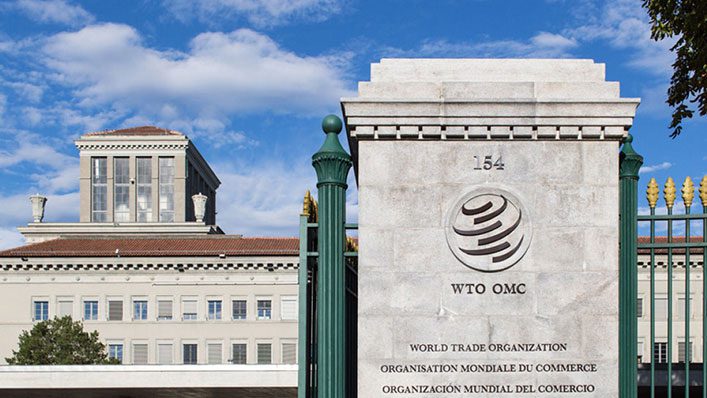
The World Trade Organization (WTO) plays a crucial role in facilitating global trade and ensuring its smooth flow. Nigeria’s membership in the WTO holds great significance, not only for the country but also for the entire African continent. By making trade flows easier, the WTO estimates that Nigeria’s exports could enter 30% more foreign markets.
I. Introduction to the World Trade Organization (WTO) and Nigeria’s Membership
A. Brief explanation of the WTO and its objectives
The WTO is an international organization that serves as a forum for member nations to negotiate trade agreements, resolve disputes, and establish rules governing international trade.
Its primary objectives include promoting free and fair trade, reducing trade barriers, and ensuring the smooth functioning of the global trading system.
B. Nigeria’s membership in the WTO and its significance
Nigeria, as a member of the WTO, gains access to a platform that enables it to actively participate in shaping global trade policies and regulations. Membership offers Nigeria the opportunity to engage in trade negotiations, strengthen economic ties with other nations, and promote its trade interests on the international stage. It also allows Nigeria
to tap into the various benefits and provisions offered by the WTO agreements.
C. Importance of African leadership in the WTO
African leadership within the WTO is crucial for representing the interests and aspirations of the continent. As a prominent member, Nigeria can play a vital role in advocating for African trade issues, contributing to the formulation of policies that foster inclusive and sustainable development across the region.
II. Economic advantages for Nigeria through WTO membership
A. Reduction of trade barriers and market access
The WTO promotes free trade through its agreements and rules, which aim to reduce trade barriers and improve market access for member nations. For example, Nigeria exports its agricultural products such as cocoa, palm oil, and rubber to various countries. These exports are facilitated by the WTO’s rules and agreements, allowing Nigerian farmers to access international markets and generate income. The WTO estimates that Nigeria could increase its exports by 27% if trade barriers are further reduced.
B. Increased foreign direct investment (FDI) and economic growth
Open global trade has a positive impact on African industrialization and development. Nigeria’s membership in the WTO enhances its attractiveness to foreign investors seeking opportunities in the region. For instance, foreign companies may invest in Nigeria’s oil industry due to the country’s membership in the WTO, leading to technology transfer, job creation, and overall economic growth. The WTO estimates that increased FDI resulting from trade liberalization could boost Nigeria’s GDP by 2.3%.
C. Strengthening positions in trade disputes
One of the significant advantages of WTO membership is the availability of dispute settlement mechanisms. In case of trade conflicts, Nigeria can utilize these mechanisms to resolve disputes in a fair and impartial manner. For example, if Nigeria faces trade disputes regarding its textile exports, it can seek resolution through the WTO’s dispute settlement process, protecting its trade interests and ensuring a level playing field.
III. enhanced economic competitiveness and diversification
A. Boosting Nigerian industries and exports
WTO membership provides Nigerian industries with access to larger international markets. Nigeria exports its products such as textiles, solid minerals, and agricultural commodities, benefiting from reduced trade barriers and increased market access facilitated by the WTO. This trade promotes the growth of Nigerian industries, diversifies the economy, and stimulates overall economic development. The WTO estimates that diversification of exports resulting from trade
liberalization could increase Nigeria’s export revenues by 16%.
B. Integration of trade into national development strategies
Nigeria can leverage its membership in the WTO to align trade policies with national development objectives. By integrating trade into its development plans, Nigeria can prioritize sectors with export potential, such as the textile industry. This strategic approach can foster innovation, enhance competitiveness, and contribute to sustainable
economic development and job creation.
IV. Capacity building and technical assistance
A. Support from the WTO-led Aid for trade initiative
The WTO-led Aid for Trade initiative provides developing countries, including Nigeria, with support in trade-related capacity building and technical assistance. Through this initiative, Nigeria can receive assistance in areas such as improving infrastructure, enhancing compliance with regulatory standards, and developing the skills necessary for
effective participation in global trade.
B. Addressing productivity and competitiveness challenges
WTO membership encourages countries to undertake reforms that enhance their productivity and competitiveness. For Nigeria, this may involve implementing reforms in tariff policies, trade facilitation, and other areas to improve efficiency and reduce costs. By focusing on productivity enhancement, Nigeria can enhance the competitiveness of its
products in the global market, attracting more international buyers.
V. Collaboration and partnerships
A. Bilateral and regional trade agreements
In addition to its WTO membership, Nigeria can explore opportunities through bilateral and regional trade agreements.
For example, Nigeria can leverage regional integration initiatives like the African Continental Free Trade Area (AfCFTA) to expand its market access within Africa. Strengthening economic ties with key trading partners, such as the United States and China, can also open up new avenues for trade and investment.
B. Engaging with international trade forums and committees
Active participation in WTO committees and engagement with international trade forums allows Nigeria to discuss
specific trade concerns, exchange best practices, and learn from the experiences of other nations.
By actively engaging in these platforms, Nigeria can shape global trade policies, gain insights into emerging trends, and advocate for its trade interests effectively.
Nigeria’s membership in the World Trade Organization (WTO) offers numerous advantages and opportunities for the country’s economic growth, competitiveness, and diversification. Through strategic collaborations, integration of trade into national development strategies, and active engagement in international trade forums, Nigeria can maximize the benefits of WTO membership and pave the way for a prosperous and sustainable future.
